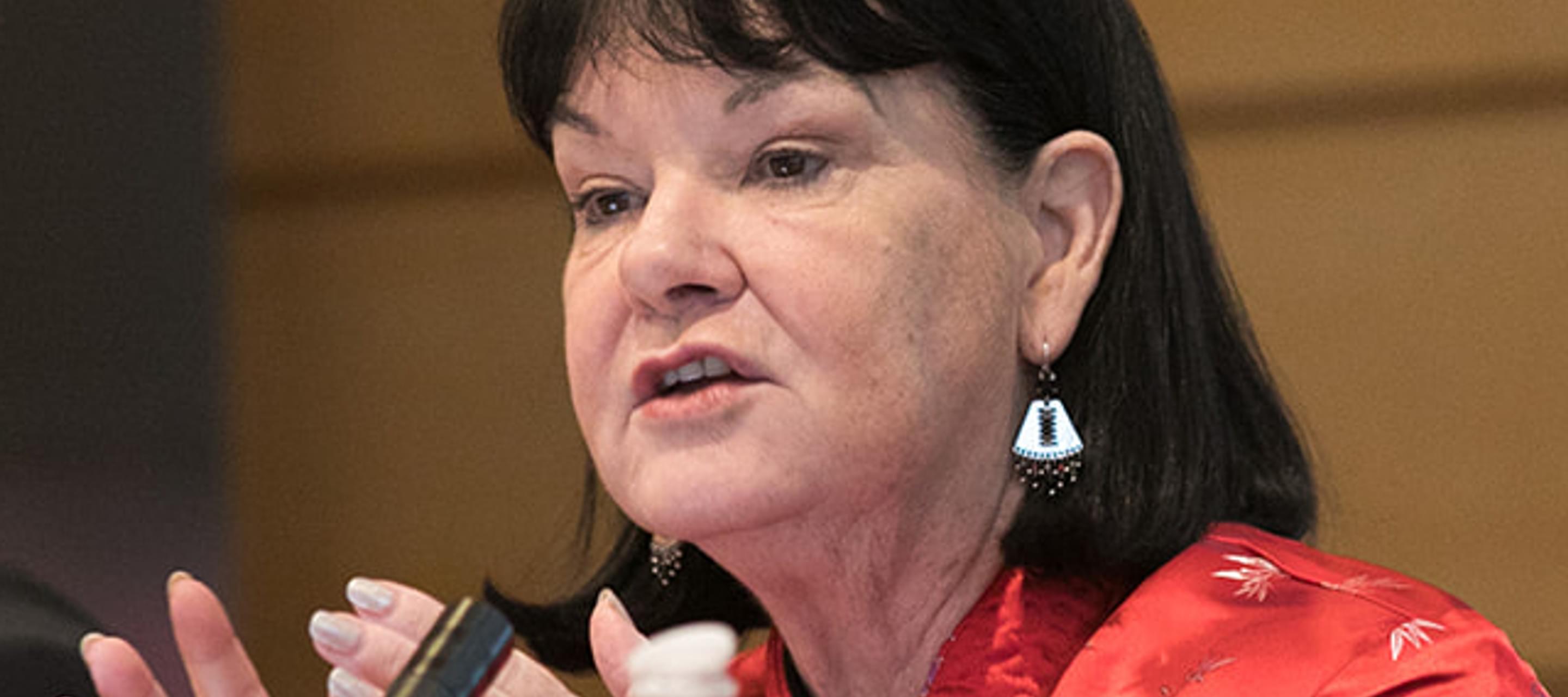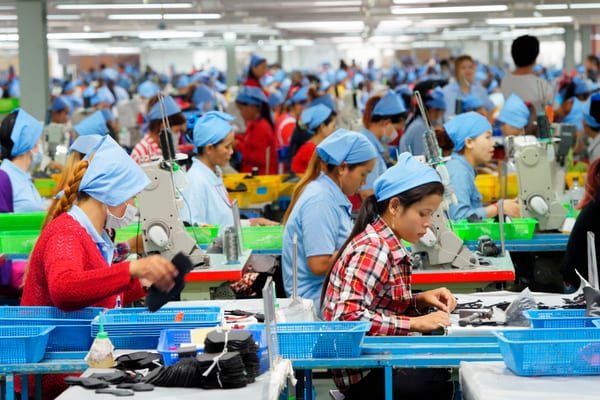Statement by Sharan Burrow to the Global Forum for Responsible Recruitment
9 July 2019

Dear friends,
The ITUC is interested in the work of the Global Forum for Responsible Recruitment and welcomes the continued focus on fair recruitment of migrant workers. Indeed, the gaps left by inadequate labour and migration regulation and administration are all too often abused by unscrupulous employers and recruiters on the back of an ever-increasing number of workers deceived and trafficked into contemporary forms of slavery.
The Forum comes at a time that we see the emergence of a plethora of initiatives and activities on fair recruitment across the world, some of which are helpful, some of which are not. I regret very much not being able to participate more actively in the debates due to prior commitment. Nevertheless, we hope the opportunity will be used to work towards consistency and coherence among activities and programmes to promote fair recruitment. Only then, we can really unite our forces and only then we can effectively work towards what clearly appears to be a common goal.
A few opportunities are at our disposal to do so.
First, there is the exact definition of our common goal. We can only work towards a common goal if we all have the same interpretation of what that really means. For the trade union movement representing workers in the global economy, the reference point is clearly the ILO General Principles and Operational Guidelines for Fair Recruitment, supplemented by the definition of fees and related costs in the context of recruitment. The Guidelines were adopted recently at the ILO between governments, workers and employers and outline what the precise respective responsibilities are of government, recruiters and end-employers to ensure that workers’ rights are protected and respected.
Indeed, human and labour rights must be protected by governments and respected by businesses throughout global supply chains. As such, workers’ rights during a recruitment process are equal to those in any hiring process into employment at national or transnational level. The emergence of private recruitment agencies, however, has meant that the business relationship between end employers and recruitment agencies in particular needed clarification as well as the role of the state vis-à-vis the same. During the debates it became clear that there are indeed conflicting interests defining in respect of the responsibility of the different stakeholders, with financial consequences. Someone has to pay and although everyone agrees that it should not be the worker who pays, the negotiations on the definition of fees clearly demonstrated important differences in interpretation of what costs and fees are covered and therefore what ‘fair’ means in the context of recruitment.
What came out of the negotiations is a carefully crafted and negotiated compromise that was in the end adopted by representatives with the different interests from regions and countries from across the globe, based on a synthesis of existing standards and regulation. It seems clear to us that this is the standard with the most legitimacy.
A second point that I would like to emphasise is indeed the participation of representatives of those affected in the exercise. In our view, any initiative that does not respect the freedom of workers to organise and bargain, fails to meet the test. We have followed with great interest the many initiatives on corporate responsibility, the many codes of conduct and certification schemes. After a couple of decades it is now absolutely clear that any such initiative is ineffective in the absence of real engagement and dialogue with worker representatives. Social auditing may well be helpful to identify risks, but it is clear that any mitigation strategy or remedy has to involve worker representatives.
In the absence of initiatives that would properly recognise the independent space and bargaining position of workers, the ITUC has been building the Migrant Recruitment Advisor, an internet platform that offers migrant workers the opportunity to rate the performance of recruitment agencies and share their experiences. I am sure that many of you are familiar with the initiative. The privacy and data of the workers is protected and not used for any commercial purpose or, worse even, abused to blacklist activists, whistleblowers or those who dare to raise their voice.
In addition to the traditional role of unions in social dialogue with governments on labour and migration, we wish to work with this tool in coordination with others who are undertaking activities to promote fair recruitment, on the condition that the platform remains independent and the workers protected. It offers, however, a unique opportunity to have independent verification of recruitment practices in any country or specific sector. We have started activities in the Philippines, Indonesia, Nepal and Malaysia, look forward to expanding soon to Sri Lanka and Kenya and hope to be expanding to European and other industrialised countries soon.
Our experience in industrial relations, tripartism and social dialogue demonstrates that true and meaningful progress can be made when trust is built and there is mutual respect for the parties involved.
I hope these two main references can bring us all closer together. We would look forward to working together more closely to drive real change where we can jointly identify potential.
We wish you every success with your deliberations.
Sharan Burrow
General Secretary
International Trade Union Confederation



